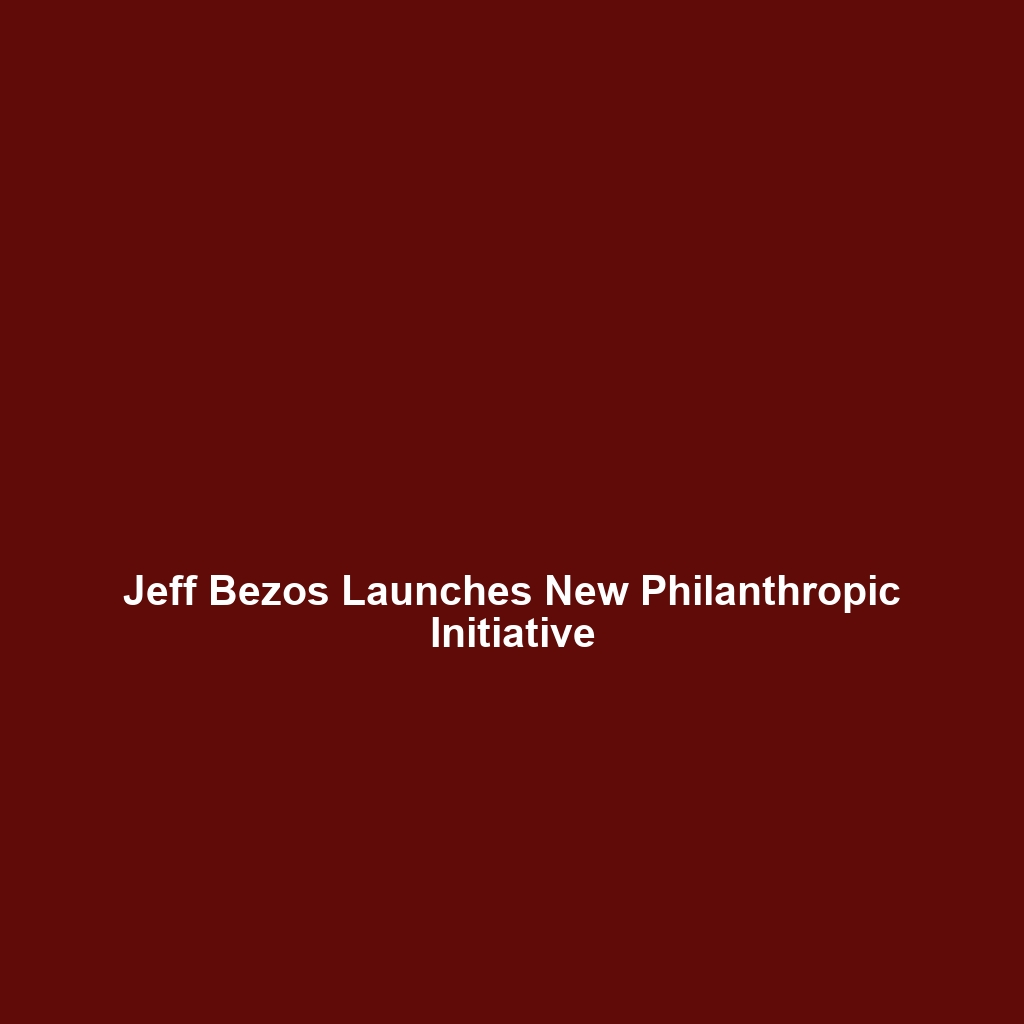Your cart is currently empty!
Tag: Jeff Bezos

Forbes 400: Meet the Richest People in America
Forbes 400: Meet the Richest People in America
Forbes 400: Meet the Richest People in America
The annual Forbes 400 Rich List has been released, spotlighting the nation’s wealthiest individuals and their significant impact on both the economy and society. This year’s list features the top 25 richest Americans, detailing their respective industries and net worths, illustrating a concentrated wealth among a small segment of the population.
The Top 25 Wealthiest Americans
According to the latest data from Forbes, the richest individual in the United States continues to be Elon Musk, the CEO of Tesla and SpaceX, with a staggering net worth of $251 billion. This marks an increase from the previous year, as Musk continues to leverage advancements in electric vehicles and space exploration. Following closely in second place is Jeff Bezos, founder of Amazon, with a net worth of $165 billion, reflecting the company’s consistent growth in e-commerce and cloud computing services.
The tech industry dominates the top spots, with individuals like Bill Gates ($135 billion), Mark Zuckerberg ($110 billion), and Larry Ellison ($109 billion) making the list. These figures reveal the dominance of technology as a driver of wealth, underscoring the transformative effect of digital platforms in modern economies.
Key Industries Driving Wealth
The 2023 Forbes 400 illustrates that technology, finance, and healthcare are the leading industries producing billionaires. The technology sector alone accounts for more than half of the list, reflecting its critical role in innovation, job creation, and economic growth. This trend highlights how technological advancement is reshaping industries entirely.
In finance, notable figures such as Warren Buffett ($117 billion) and Ken Griffin ($34 billion) emphasize the importance of investment strategies and market navigation in achieving significant wealth. The financial services industry remains a powerful force in the economy, showcasing the profitability of investing in diverse markets.
Regional Wealth Concentration
Geographically, California and New York are well-represented in the Forbes 400 list. Silicon Valley is a hub for tech billionaires, with Musk and Zuckerberg as prominent examples. Meanwhile, New York remains a pivotal center for finance and commerce, evidenced by billionaire figures like Steve Schwarzman and Lloyd Blankfein.
Notably, Texas’s status as a growing center for fortune accumulations is reflected by the presence of Elon Musk, who moved Tesla’s headquarters from California to Austin, further indicating the shifting dynamics in where wealth is generated and housed.
Economic Impact of the Billionaires
The wealth amassed by the individuals on the Forbes 400 list has significant implications for the American economy. These billionaires are often at the helm of businesses that drive job creation, technological innovation, and investment opportunities. For instance, companies such as Amazon and Tesla lead in their respective fields, influencing market trends and consumer behaviors.
Moreover, philanthropic efforts by many billionaires have resulted in significant contributions to public welfare. The Billionaire’s Pledge, which encourages wealthy individuals to give away at least half of their fortunes, has garnered participation from several top names on the list, highlighting the social responsibility that accompanies great wealth.
Challenges and Critiques
Despite their wealth and contributions, the billionaires on the Forbes 400 list face increasing scrutiny regarding wealth inequality in America. Critics argue that the concentration of wealth in the hands of a few undermines economic mobility and contributes to systemic issues affecting lower-income populations. Discussions surrounding tax reform, minimum wage adjustments, and wealth redistribution are prevalent and bring forward deep societal debates.
Additionally, as large corporations continue to grow, the impact on small businesses and local economies is subject to examination. The rise of monopolistic practices within industries raises questions about competition and fair market practices.
Conclusion
The Forbes 400 Rich List remains a powerful indicator of wealth distribution in the United States, illuminating the names and industries that define high-net-worth individuals. As these billionaires influence the economy and society at large, discussions about their roles, responsibilities, and the implications of their wealth continue to evolve.
As the nation grapples with issues surrounding economic disparity, the actions and impacts of the wealthiest Americans will be crucial to watch in the coming years. For further reading on this topic, explore insights on wealth inequality and economic policy reforms from reputable sources such as The Brookings Institution and the Economic Policy Institute.





